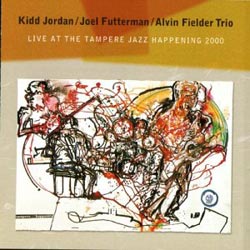
A superb live album recorded at the 2000 Tampere Jazz Happening, Pakkahuone, Finland, and the 4th release from the trio of Kidd Jordan on tenor sax, Joel Futterman on piano, soprano sax & indian wooden flute, and Alvin Fielder on drums & percussion; improvisation performed like old friends, the album divided into six tracks plus an encore but performed as one long piece.
In Stock
Quantity in Basket: None
Log In to use our Wish List
Shipping Weight: 5.00 units
EU & UK Customers:
Discogs.com can handle your VAT payments
So please order through Discogs
Sample The Album:
Kidd Jordan-tenor sax
Joel Futterman-piano, soprano sax, indian wooden flute
Alvin Fielder-drums and percussion
Click an artist name above to see in-stock items for that artist.
UPC: B0001CJ8TG
Label: CLM
Catalog ID: CLM 6
Squidco Product Code: 2722
Format: CD
Condition: New
Released: 2004
Country: USA
Packaging: Jewel Case
Live concert performance on November 4, 2000 at the Tampere Jazz Happening, Pakkahuone, Finland.
"This recording captures the critically acclaimed concert performance of these three masterful improvisational music artists. For over an hour the Trio mesmerized and captivated their appreciative Finnish audience with an outpouring of endless creative energy. This recording expresses the magic of the moment in which the Trio drew their creative energies not only from each other but from their entranced audience. From the very first musical phrases to the very last, the Trio takes the listener on an adventurous and imaginative musical journey characterized by their deep innate sense of connection and close communication that allows each to transform their individual creativity into a single, synergistic musical expression. This is a tight improvisational Trio who produce kinetic, inspired and highly engrossing music created entirely"in-the-moment."
"Live at the Tampere Jazz Happening 2000 is the fourth release by the trio. On previous outings—and under various names—they’ve been joined by bassists Parker and Elton Heron, but here they stick to the three-piece like old friends. The disc is divided into six tracks plus an encore, but it comes off like one long jam. Futterman spends more time at the keyboard than on previous discs, which is welcome; his piano playing is far more pleasing than his sometimes shrill soprano sax. Fielder is relaxed but ever present and Jordan, as always, is incisive and exciting."-Kurt Gottschalk
Artist Biographies
• Show Bio for Kidd Jordan "Edward "Kidd" Jordan (born May 5, 1935) is an American jazz saxophonist and music educator from New Orleans, Louisiana. After completing a music degree at Southern University in Baton Rouge, he relocated to New Orleans. He taught at Southern University at New Orleans from 1974 to 2006. Jordan was born in Crowley, Louisiana, and was raised during the time when rice farming was the predominant economic activity in the area. Jordan has noted that the music in southwestern Louisiana was "strictly Zydeco and Blues from way around, and that's what I came up listening to." Zydeco musician Clifton Chenier hailed from the same area, as did tenor saxophonist Illinois Jacquet (whose music teacher also instructed Jordan). Jordan's first instruments were C-melody and alto saxophones. While in high school, Jordan began performing "stock arrangements for three or four saxophones" with some older musicians, and immersed himself in the music of Charlie Parker. Jordan read transcribed solos in Down Beat magazine but also learned Parker's music by ear. He credits Illinois Jacquet with first giving him the idea of playing free improvisation, but was more profoundly affected by the free jazz of Ornette Coleman (who had previously performed in the area with blues bands). Jordan majored in music education at Southern University, attending the school at the same time as Alvin Batiste (his brother-in-law). He originally planned to become a classical alto saxophonist. He moved to New Orleans in 1955, and began playing frequent R&B gigs with musicians such as Guitar Slim, Ray Charles, Big Maybelle, Big Joe Turner, Chuck Willis (with George Adams on baritone) and Choker Campbell. Jordan has described these gigs as being "satisfying for me, because there was a feeling that you'd get from dealing with that. I've played with some of the great female vocalists, from Gladys Knight to Aretha Franklin, or Big Maybelle, Little Esther, Lena Horne, and there's an aesthetic in dealing with those people that a whole lot of people don't get to. And the aesthetic from the Blues is a part of the thing that I want to have in my playing. I don't care how out it gets." Jordan performs on tenor, baritone, soprano, alto, C-melody and sopranino saxophones, as well as contrabass and bass clarinets. He has indicated a preference for playing "outside" music (for example, free improvisation) on tenor, because he closely associates the alto with his earlier study of classical repertoire, tone, and technique. Jordan has performed and recorded with a wide selection of musicians in styles ranging from R&B to avant-garde jazz, including Ray Charles, Stevie Wonder, R.E.M., William Parker, Alvin Fielder, Archie Shepp, Fred Anderson, Ornette Coleman, Ellis Marsalis, Cannonball Adderley, Ed Blackwell, and Cecil Taylor. In 2008 he was awarded a lifetime recognition honor by the Vision Festival. In his performances and recordings his music is entirely improvised: "Everything you hear on my albums is improvised." he explains. "It's collective improvisation, but there are no tunes. I tried writing down ideas a long time ago but I don't do that anymore.". The French Ministry of Culture recognized Jordan as a Knight (Chevalier) of the Ordre des Arts et des Lettres in 1985. The French government bestowed him with their highest artistic award for his impetus as a visionary educator and performer. Jordan taught Donald Harrison and Branford Marsalis while the two were teenagers, and was an instructor at New Orleans Center for Creative Arts (NOCCA). As an instructor of jazz studies at Southern University at New Orleans, Jordan encouraged his students to pursue new approaches to traditional musical forms. One of Jordan's students was trombonist Charles Joseph, who would go on to co-found the Dirty Dozen Brass Band. Jordan composed "Kidd Jordan's Second Line" for the Dirty Dozen Brass Band prior to their first European appearance in 1982, and has also performed with the band. In 2006, Jordan lost his home and most of his possessions during the aftermath of Hurricane Katrina. A few weeks after the hurricane, he recorded the album Palm of Soul in Brooklyn with William Parker and Hamid Drake. Jordan has since returned to New Orleans. In 2011, the television series Treme featured a track from Palm of Soul, "Last of the Chicken Wings." Jordan later made a brief appearance in Treme." ^ Hide Bio for Kidd Jordan • Show Bio for Joel Futterman "Joel Futterman, Piano and Indian Flute Determined to push the limits of the piano to techniques never heard in jazz, Joel began a 25-year regimen of practicing 8-10 hours a day. During this period, he developed a three-hand technique based on completely autonomous playing between the hands. With more than 70 recordings, he is considered one of the most innovative yet enigmatic new music pianists. Known for his spirited, highly imaginative, and innovative piano technique, Joel Futterman is an internationally recognized veteran pioneer into the frontiers of spontaneous, improvised music. He is considered one of the foremost inventive and adventurous artists shaping the creative, progressive music scene today. Futterman continuously pushes the limits of the piano as he explores new musical horizons. He has performed across North America and Europe including at such noted music festivals as the Tampere Jazz Festival in Finland, the Vision Festival in New York, the New Orleans Jazz & Heritage Festival, and the Guelph Festival in Canada. He has performed with such notable jazz innovators as Jimmy Lyons, Rahsaan Roland Kirk, Paul Murphy, Joseph Jarman, Richard Davis, William Parker, Alvin Fielder, and Hal Russell; as well as Edward 'Kidd' Jordan, with whom he has had a highly productive association. For many years, Futterman has also played the Indian Wooden Flute. Joel Futterman was born in Chicago, IL. He grew up and lived in Chicago until 1972. Joel had piano lessons from about age 9-11, then continued playing on his own, eventually studying theory and harmony with Alan Swain. Joel met Clarence (Gene) Shaw when he was 18 and studied with Clarence for two years. Clarence was an important influence at the time. One night Clarence invited Joel to his home for a party. He introduced Joel to Charles Mingus. Joel recalls that Mingus gripped his hand firmly and stared up at the ceiling. Joel attended University of Illinois in Chicago obtaining a (B.S.). Herman Finer, professor of political science, was a profound influence and encouraged Joel to pursue his creative endeavors. While Joel was in college, his mother passed away and he isolated himself and began practicing 12 to 16 hours a day. Practicing was the only comfort for him at this time. Joel attended Northeastern University in Chicago and worked on an MS in Education. He was nine hours short of receiving the degree when he decided to leave Chicago. Joel did receive an MS in Education with an endorsement in Reading at Old Dominion University in 1975. In 1972, Joel moved to Virginia, where he resides today, in a personal quest to develop his creative voice. His first album, CAFETERIA, was released in 1980 to considerable acclaim due to its originality. Since then, his recordings have included a number of jazz legends, such as Jimmy Lyons, Richard Davis, Hal Russell, William Parker and others. In 1994, photographer Michael Wilderman introduced Joel to Edward 'Kidd' Jordan, and since then Joel has enjoyed many rewarding musical collaborations with Kidd and drummer Alvin Fielder. Also, Joel Futterman has had a deep association with artist Ike Levin, founder of the Charles Lester Label." ^ Hide Bio for Joel Futterman • Show Bio for Alvin Fielder "Alvin Leroy Fielder, Jr. Born: November 23, 1935 in Meridian, Mississippi. Died January 5, 2019. Drums, Percussion, Composer. Father, Alvin Fielder Sr., studied coronet. Mother played piano and violin; grandmother played piano; mother's brother played clarinet. Brother, William, is Director of Jazz Studies, trumpeter, and trumpet instructor at Rutgers University. At 13, Alvin Fielder began musical studies by joining Harris Senior High Band in Meridian, Mississippi, under leadership of Carlia "Duke" Otis. Alvin continued studies with Ed Blackwell while in New Orleans studying pharmacy at Xavier U. in 1952-53. After transferring to Texas Southern U. in Houston, TX, he continued course of study with Herb Brockstein as well as private lessons with George "Dude" Brown, Gene Ammons, drummer from Washington, DC, and Clarence Johnston, James Moody's drummer, from Boston, MA, whenever they came through Houston working. Alvin also had informal lessons with Jual Curtis and G.T. Hogan. From 1954-56, Alvin worked with the "Pluma" Davis sextet, which included Don Wilkerson, Richard "Dicky Boy" Lillie, John Browning, Carl Lott, Cr., and many other Houston jazz luminaries. He backed such artists as Lowell Fulsom, Amos Milburn and other R&B artists with extended engagements in Houston. Alvin also made several studio dates for Duke records. He was also active on Houston jazz scene with Jimmy Harrison Quintet, John Browning quintet, and Eddie "Cleanhead" Vinson sextet. From 1959 to 1968, Alvin was active in Chicago with: Sun Ra Arkestra 1960-61, Muhal Richard Abrams 1962-63, Roscoe Mitchell 1963-66, Eddie Harris and Kalaparusha 1965, co-op trio with Fred Anderson and Lester Lashley 1967-69. In between, he worked with John Stubblefield, Jack DeJohnette, "Scotty" Holt, Joseph Jarman, and other Chicago jazz musicians. Alvin is a charter member of AACM with Muhal Abrams, Roscoe Mitchell, Fred Anderson, Malachi Favors, Jodie Christian, Steve McCall, Phil Cohran, Thurman Barker, Ajaramu, Charles Clark, Christopher Gaddy, Freddy Berry, etc. While in NY in 1962, Alvin played and rehearsed with Ernie Farrow, Bernard McKinney, Ray McKinney, Wilbur Ware, Vincent Pitts, Pat Patrick, George Scott and musicians associated with this era. Alvin moved back to Mississippi in late 1968 to take over family pharmacy due to father's illness. With John Reese and Black Arts Music Society, Alvin was active in obtaining grants from NEA and Mississippi Arts Commission to bring musicians such as Roscoe Mitchell, John Stubblefield, Malachi Favors, Muhal Richard Abrams, Clifford Jordan and others to Mississippi. Alvin worked extensively in early 1970s with Joe Jennings, alto saxophonist now in Atlanta, and Edward "Kidd" Jordan, multi-saxophonist from New Orleans, with whom he co-leads the Improvisational Arts quintet. One of the most important new music groups in the South, IAQ has included at various times Clyde Kerr, trumpet; Alvin Thomas, tenor saxophone; London Branch, Elton Herron, basses; Darryl Levine, piano; Kent Jordan, flute. Also worked with Dennis Gonzalez, trumpeter and multi-instrumentalist from Dallas, another leader on the new music scene in Dallas and TX. Alvin also had a founding role in the nationally-acclaimed Louis "Satchmo" Armstrong Jazz Camp in New Orleans, LA. Alvin has been involved with this growing program since it began in 1995. Recordings include Sound (1967) with Roscoe Mitchell Sextet, No Compromise (1983) with IAQ, The New New Orleans Music (1985) with New Music Jazz for Rounder, and Liquid Magic, Bannar, Namesake (all 1987) and Debenge-Debenge (1988) for Silkheart, (2006) Live at The Blue Monk, and (2004) Resolving Doors, The Joel Futterman, Alvin Fielder, Ike Levin Trio. Appearances include Lincoln Center, Chicago; NO Jazz & Heritage Festival; Jazz Marathon '82 Festival, Holland; Moers Intl. New Jazz Festival, Germany 1982; Jazz Danes LA Drones Festival, France 1984; Northsea Jazz Festival, Netherlands 1984; Heinekin Jazz Festival, Netherlands 1988; Atlanta and Texas jazz festivals 1989; Festival Intl. de Louisiane 1991." ^ Hide Bio for Alvin Fielder
3/26/2025
Have a better biography or biography source? Please Contact Us so that we can update this biography.
3/26/2025
Have a better biography or biography source? Please Contact Us so that we can update this biography.
3/26/2025
Have a better biography or biography source? Please Contact Us so that we can update this biography.
Track Listing:
1. Track 1 0:56
2. Track 2 18:22
3. Track 3 13:10
4. Track 4 5:36
5. Track 5 10:44
6. Track 6 10:11
7. Track 7 10:02
Improvised Music
Jazz
Free Improvisation
NY Downtown & Metropolitan Jazz/Improv
Trio Recordings
Staff Picks & Recommended Items
Search for other titles on the label:
CLM.



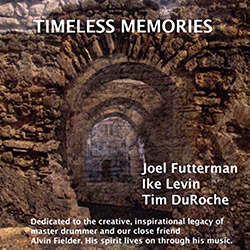
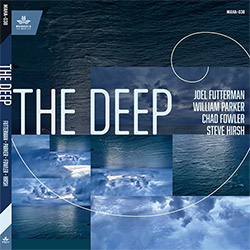
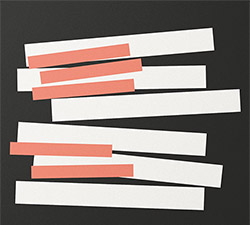
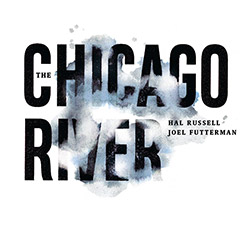



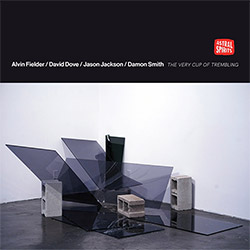
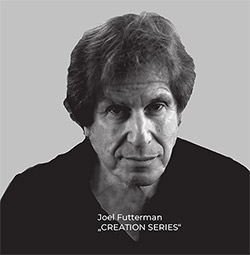

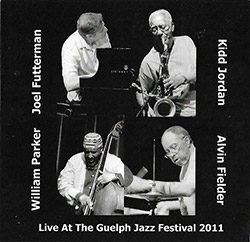
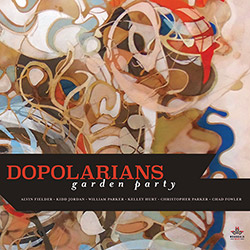

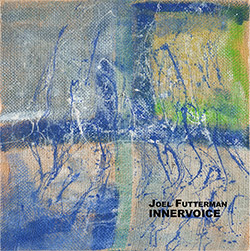


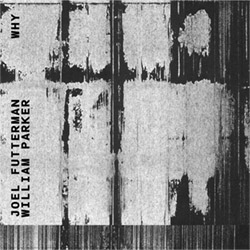
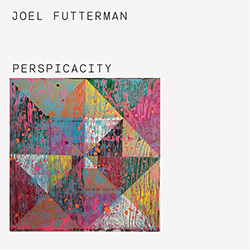

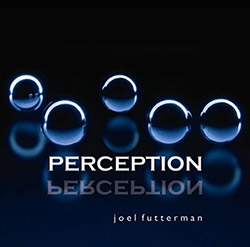
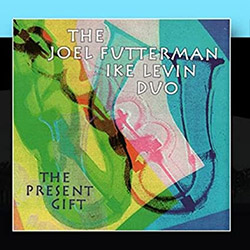
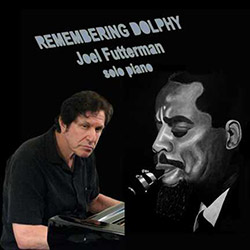
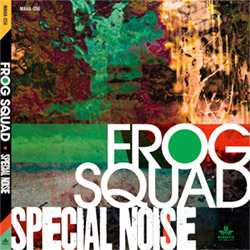

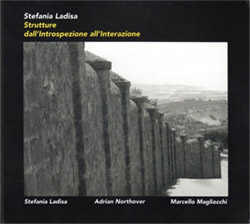






![Ackerley / Prymek / Turner: All Hope With Sleeping Minds [CASSETTE]](https://www.teuthida.com/productImages/misc4/35950.jpg)
![Myers, David Lee : Tin Drop Tear [BOOK w/ DOWNLOAD]](https://www.teuthida.com/productImages/misc4/36030.jpg)



![Schindler, Udo / Sandy Ewen / Damon Smith: Munich Sound Studies Vols. 4, 5 & 6 [3 CDs]](https://www.teuthida.com/productImages/misc4/35966.jpg)






![Turbulence Orchestra & Sub-Units: Smear Out the Difficulties (Double Live) [2 CDs]](https://www.teuthida.com/productImages/misc4/36048.jpg)
![Perelman, Ivo / Tyshawn Sorey: Paralell Aesthetics [2 CDs]](https://www.teuthida.com/productImages/misc4/35871.jpg)


![Sjostrom, Harri: SoundScapes #4 Festival Berlin 2023 [3 CDs]](https://www.teuthida.com/productImages/misc4/35874.jpg)

![Musicworks Magazine: #150 Winter 2024/25 [MAGAZINE + CD]](https://www.teuthida.com/productImages/misc4/36035.jpg)





![Glenn, Jordan: Flustered [CASSETTE]](https://www.teuthida.com/productImages/misc4/35948.jpg)


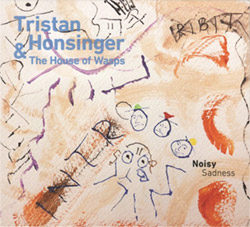
![Lindorff-Ellery, Evan: Church Recordings from Monhegan [CASSETTE]](https://www.teuthida.com/productImages/misc4/35949.jpg)
![Schindler, Udo / Werner Dafeldecker / Gunnar Geisse: Travelling Sound Images - Cognitive Transfers [Trio]](https://www.teuthida.com/productImages/misc4/35767.jpg)

![Egberth, Dennis: The Dennis Egberth Dynasty [VINYL]](https://www.teuthida.com/productImages/misc4/35549.jpg)


![Schindler, Udo / Rieko Okuda / Eric Zwang Eriksson: Disturbed Terrains [2 CDs]](https://www.teuthida.com/productImages/misc4/35330.jpg)
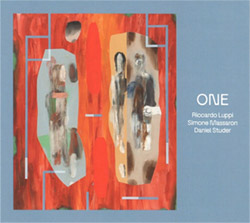
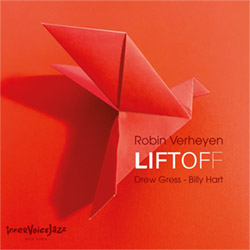
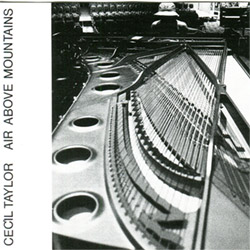


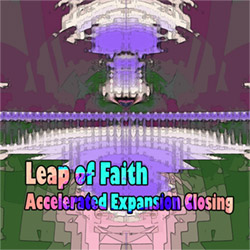
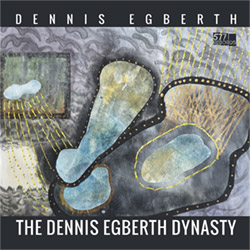
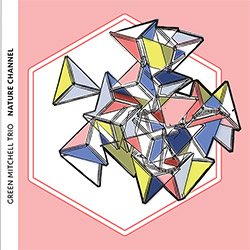

![Wolf Eyes / Anthony Braxton: Live At Pioneer Works, 26 October 2023 [VINYL]](https://www.teuthida.com/productImages/misc4/35839.jpg)




![Olencki, Weston : Pearls Ground Down To Powder [VINYL]](https://www.teuthida.com/productImages/misc4/35956.jpg)
![Myers, David Lee: Oculus [2CDs]](https://www.teuthida.com/productImages/misc4/35857.jpg)


![dustsceawung: dustsceawung [CASSETTE w/ Download]](https://www.teuthida.com/productImages/misc4/35753.jpg)




![Halls of the Machine: Atmospheres For Lovers And Sleepers [CASSETTE w/ DOWNLOAD]](https://www.teuthida.com/productImages/misc4/35806.jpg)



![AHC (Alexander Cooper): Lase [2 CDs]](https://www.teuthida.com/productImages/misc4/35754.jpg)



![Fagaschinski, Kai / Yan Jun : Graveyard Processions [VINYL w/ DOWNLOAD]](https://www.teuthida.com/productImages/misc4/35474.jpg)
![Brant, Cody / Carl Kruger: Smoke Detail [CASSETTE w/ DOWNLOAD]](https://www.teuthida.com/productImages/misc4/35551.jpg)







![Zorn, John / JACK Quartet: The Complete String Quartets [2 CDs]](https://www.teuthida.com/productImages/misc4/35609.jpg)

![Lonsdale, Eden: Dawnings [2 CDs]](https://www.teuthida.com/productImages/misc4/35480.jpg)







![Sanna, Claudio: Compositori Sardi Contemporanei II [2 CDs]](https://www.teuthida.com/productImages/misc4/35317.jpg)







![Zurria, Manuel: Fame di Vento [3 CDs]](https://www.teuthida.com/productImages/misc4/35167.jpg)

![Granberg, Magnus / Nattens Inbrott / Skogen: Holde Traume, Kehret Wieder! [2 CDs]](https://www.teuthida.com/productImages/misc4/35038.jpg)

![Electric Bird Noise / Derek Roddy: 8-10-22 [CD EP]](https://www.teuthida.com/productImages/misc4/35970.jpg)








![Elephant9 : Mythical River [VINYL]](https://www.teuthida.com/productImages/misc4/34624.jpg)



![Elephant9 with Terje Rypdal: Catching Fire [VINYL 2 LPs]](https://www.teuthida.com/productImages/misc4/35355.jpg)
![Deerlady (Obomsawin, Mali / Magdalena Abrego): Greatest Hits [VINYL]](https://www.teuthida.com/productImages/misc4/34876.jpg)







![Surplus 1980: Illusion of Consistency [CD]](https://www.teuthida.com/productImages/misc4/35069.jpg)
![Staiano, Moe: Away Towards the Light [VINYL + DOWNLOAD]](https://www.teuthida.com/productImages/misc4/35037.jpg)



![Caveira (Gomes / Sousa / Abras / Ferrandini): Ficar Vivo [VINYL]](https://www.teuthida.com/productImages/misc4/34643.jpg)
![Coley, Byron: Dating Tips for Touring Bands [VINYL]](https://www.teuthida.com/productImages/misc4/17906.jpg)

![Lost Kisses: My Life is Sad & Funny [DVD]](https://www.teuthida.com/productImages/misc4/lostKissesDVD.jpg)